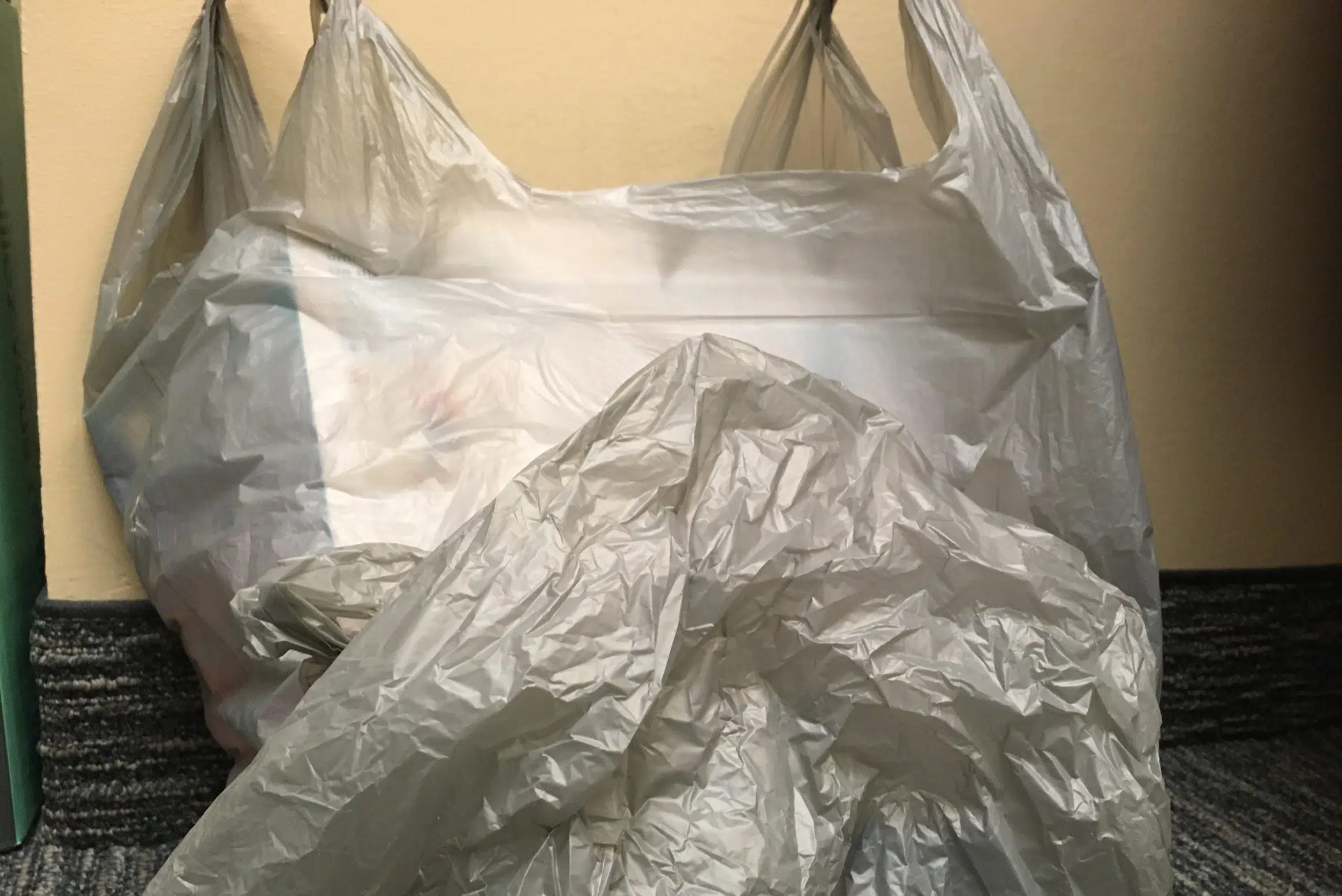Prince Albert has become the first city in Saskatchewan to ban plastic checkout bags.
City council passed the bylaw unanimously at Monday night’s meeting, despite some last minute concerns raised by the P.A. and District Chamber of Commerce.
After a six month period of adjustment, enforcement of the bylaw will begin Aug. 1, at which time businesses or restaurants found distributing or selling plastic bags could face fines of up to $1,000.
Exemptions will be made for bags used to carry produce, meat, unpackaged baked goods, flowers, bulk items, live fish and dry cleaning. Stores will still be able to sell packages of multiple plastic bags such as Ziplocs and garbage bags.
City council voted to have administration draft a bylaw banning plastic bags in October last year. Since the beginning, the idea has been popular with councillors, largely as a means to reduce the amount of waste sent to Prince Albert’s costly landfill.
On Monday it faced one last hurdle before being put to a final vote.
“It takes time to switch a mindset and habits,” P.A. Chamber of Commerce CEO Elise Hildebrandt told council. “Plastic bags are on their way out, but the business community does not feel the switch can be done in six months.”
She cited that 51 per cent of her members disagreed with the bylaw, although during questioning from city councillors, admitted that only 10 per cent of the chamber’s 700 members responded to the emailed survey.
Hildebrant proposed city council should wait for the federal government to legislate on plastic bags, or push the bylaw back by a year. The suggestions were not well received by council.
“I think it’s high time that we become a leader not a follower,” Coun. Don Cody told the meeting. “We don’t follow government in the city, government is too slow for us.”
Mayor Greg Dionne said he supported the bylaw and would pressure the federal and provincial governments to restrict other kinds of single-use plastics that fall outside the city’s jurisdiction. He named plastic packaging from online retailers like Amazon as a major problem.
“We’re not going to sit back quietly,” he said. “Because as online shopping continues to grow, so does the pollution that comes to our landfill.”











